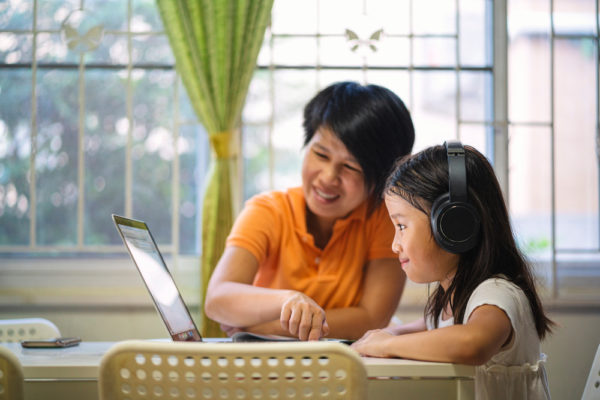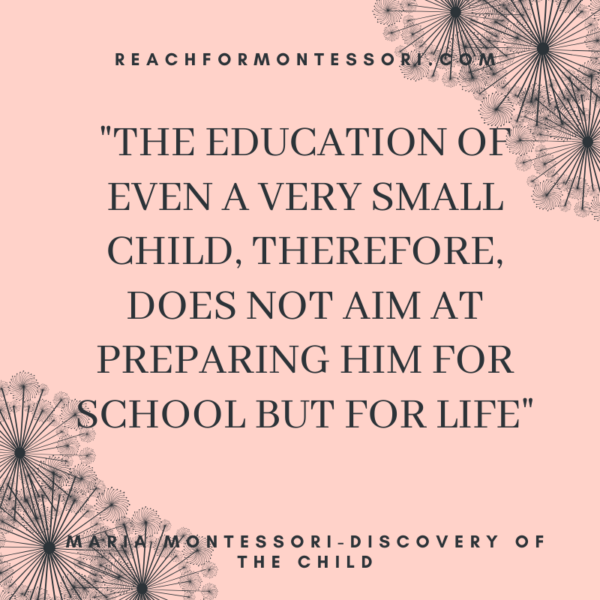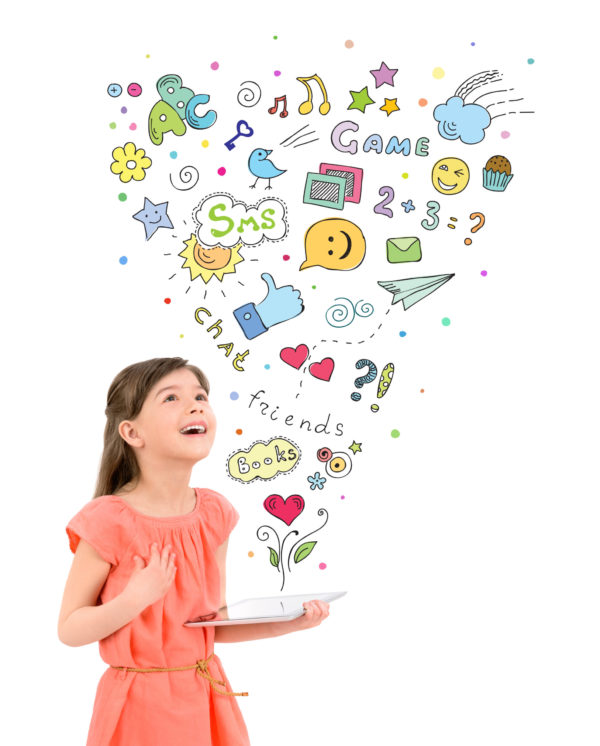Maria Montessori herself believed that education should be a pliable concept—one that is flexible and can be adapted to meet not only the needs of the child, but the constraints of the environment as well. With the current public health crisis and resulting school closures, you might be asking yourself whether or not Montessori can be taught online.
In short, the answer is “yes,” so be encouraged! Montessori can absolutely be taught online, though there may be some obstacles to overcome in order for online instruction to be effective.

Why Montessori Is the Perfect Philosophy for Online Instruction
You may think that nothing can replace the presence of an actual teacher in a “real” learning environment, but the Montessori method actually lends itself to distance learning quite well. Here’s why:
Montessori Is Self-Paced
One of the benefits of online learning is that it is largely self-paced. This advantage of distance education is well-documented and touted by online schools and universities across the country.
The online learning environment creates a space in which learners can navigate lessons independently and progress through content as they master the necessary skills.
Self-paced learning also happens to be one of the tenants of successful Montessori education. Montessori teachers espouse the belief that children perform best when they’re given the freedom to learn concepts on their own timelines as opposed to one imposed by a predetermined curriculum or schedule.
Therefore, kids accustomed to being taught in a Montessori environment should transition to an online learning platform fairly seamlessly, at least in terms of the pace of their learning.
Montessori Encourages Independence
No matter how carefully teachers craft online lessons, they are, by their very nature, less restrictive than those delivered within a traditional classroom environment.
Whether by design or by necessity, online learning will inevitably facilitate learning independence as students are given more control of their own learning environments. With no teacher to look over their shoulders, children must take the helm and be responsible for their own learning.
Independence in learning is a value that is especially dear to the Montessori community. You’ll often hear members of the Montessori community repeating the mantra, “Follow the child.”
Indeed, Montessori educators strive to facilitate autonomy in their students, so they can enjoy a lifetime of self-guided learning beyond the restraints of the classroom. This is one place where online learning and the Montessori method clearly intersect.
Montessori Requires a Whole-Family Approach
For decades, the Montessori method has advocated for a high level of parental involvement in the education of young children. Montessori practitioners whole-heartedly believe that parents are children’s first teachers, and are often in the best position to guide their kids through meaningful learning experiences.

An online environment is an ideal place for parents to join their children as true partners in the education process. Since distance education takes place primarily within the home environment, it removes any physical barriers to the parental involvement children need while learning new concepts.
With online learning, moms and dads become ever-present participants as opposed to occasional visitors to the learning space.
Obstacles to Montessori Teaching and Learning in an Online Environment
Montessori Relies on Hands-On Instruction
At the heart of the Montessori philosophy is the belief that children learn by touching, manipulating objects, and “doing.” Hands-on learning is one of the concepts people commonly associate with the Montessori approach, and it is a non-negotiable component of the philosophy.
So, how does tactile learning fit into a distance learning environment? This may very well be the biggest obstacle to adapting Montessori to an online environment, at least at first glance.
It’s a misconception that online instruction can’t facilitate this type of learning, though. When you think of online instruction, you may envision a student staring at a computer screen while passively taking in instruction.
In this way, online learning may resemble some of the ineffective teaching methods often observed in lecture-style classroom environments. This is the opposite of what one would expect to see happening in a Montessori environment.
Thanks to advancements in educational technology (and really, just technology in general), online learning doesn’t have to be a passive experience, however, nor should it be. To the contrary, children in virtual learning environments can participate in many of the same hands-on activities as they would in a more traditional classroom setting.
Plus, with a little creative nudge from teachers, students may be able to take active learning to an entirely different level using distance education technology.

Montessori Requires Trained Instructors
To be effective, the Montessori method should be applied by trained professionals. Traditionally, this means that children are taught alongside teachers (or parents) who have undergone professional training in Montessori education.
Many critics of online Montessori instruction worry that children simply won’t thrive unless they’re within physical proximity of a qualified Montessori teacher.
While this is a valid concern, it is an obstacle that can be overcome. Meaningful online Montessori instruction necessitates that trained Montessori professionals provide assistance to parents as they help children navigate the online learning experience.
In essence, parents become liaisons between teachers and children and act as guides and facilitators as their children practice new concepts.
In order for distance education to work within a Montessori environment, teachers must also provide parents with resources and strategies as they help their kids master new learning.

This could mean providing them with tools typically used in the classroom or giving them instructions as to how to use household objects as learning aides, for instance.
These instructors must also be committed to frequent communication with parents regarding their children’s progress and needs.
If you’re considering online Montessori education for your child, you’ll be relieved to learn that not only can it be done, but it can be very effective as well.
So long as you’re willing to think outside of the box, communicate with your child’s instructors, and play an active role in your child’s learning, you can absolutely implement Montessori within a distance education environment.
Cheers and don't forget to subscribe!

Interesting article, however a few pointers on how to achieve this would have been really helpful!
Thank you. I would love this for my middle school children but I don’t know how to transition or how to begin or what kind of guidance they would need from me.
I’m a trained and qualified Montessori Directress carrying a diploma.
I would like to start online Montessori teachings for ages 3- 6 years…
Please contact me for advice ?…
Good Day
I am a qualified Montessori Teacher in South Africa.Could you please send me some website ideas on where to buy a full online Montessori curriculum for children aged 3-6 years old.Please.Would be much appreciated
Thank You
chantalc82@gmail.com
@Chantal, Hi Chantal. I’m interested to know if you got a response to this. I’m also a South African Montessori teacher who would like to teach online.
Yes i can do . because I know about mariar Montessori .I love kids and I have taken training about Maria Montessori
I would love to learn how Montessori can be taught online. I am a qualified Montessori directresss